What are Farm Irrigation Systems
Farm irrigation systems are vital components in modern agriculture, designed to provide precise and controlled water distribution to crops across varied landscapes. These systems are essential for ensuring that crops receive the necessary moisture for growth, particularly in regions where rainfall is insufficient or unpredictable. They are employed by farmers and agricultural businesses alike to maximize crop yield, conserve water, and manage resources more efficiently.
The fundamental principle behind farm irrigation systems is the artificial application of water to soil or land to assist in the growing of agricultural crops. This is especially crucial during periods of less than average rainfall, as well as maintaining landscapes and revegetating disturbed soils in dry areas during times of inadequate natural precipitation.
There are several methods by which irrigation systems operate. Some mimic natural rainfall by distributing water through a system of pumps and sprinklers, while others deliver water directly to the root zone of plants using drip or trickle irrigation methods. Each method has its specific advantages and is chosen based on the requirements of the crop, soil type, water availability, and the topography of the farming land.
Farm irrigation systems range from simple, manually operated units to advanced, automated systems equipped with sensors and timers for precision watering. With technological advancements, modern irrigation systems can be highly sophisticated, featuring computerized control panels that allow farmers to schedule irrigation timings and manage water usage effectively, thereby reducing waste and improving crop production.
Types of Farm Irrigation Systems
Farm irrigation systems come in various designs and complexities to suit different terrains, crop types, and water requirements. Understanding these systems helps businesses choose the most suitable option for their agricultural needs.
Surface Irrigation: This traditional method involves distributing water over the soil surface by gravity flow. It is best suited for large fields with flat terrains and is widely used due to its simplicity and low cost.
Drip Irrigation: Also known as trickle irrigation, this system delivers water directly to the base or root zone of plants through a network of valves, pipes, tubing, and emitters. Drip irrigation is highly efficient, conserving water by minimizing evaporation and runoff. It's ideal for row crops, orchards, and vineyards where precise watering is critical.
Sprinkler Irrigation: Similar to rain, this system uses a system of pipes to pump water which is then sprayed over the crops with sprinklers. It's versatile enough for use on a variety of crops and adaptable to nearly any farmable slope or terrain.
Center Pivot Irrigation: A form of overhead sprinkler irrigation consisting of several segments of pipe joined together and supported by trusses, mounted on wheeled towers. The entire system moves in a circular pattern and is fed with water from the pivot point at the center of the circle.
Subsurface Irrigation: By installing a network of pipes beneath the soil surface, this system delivers water directly to the root zone. It can reduce evaporation losses significantly and is suitable for areas with high evaporation rates.
Each type has common use cases based on efficiency needs, topography adaptability, initial investment costs, and labor requirements.
How to Choose Farm Irrigation Systems
Selecting the right farm irrigation system requires careful consideration of several factors including crop type, soil composition, water availability, climatic conditions, topography, cost-effectiveness, and energy consumption. Businesses should evaluate:
Water Source Reliability: Ensure that your chosen irrigation system aligns with your available water source's capacity and reliability.
Soil Type: Different soils have different infiltration rates which affect how quickly they absorb water. Choose a system that matches your soil's characteristics.
Crop Requirements: Consider the specific water needs of your crops; some may benefit from direct-to-root systems like drip irrigation while others may require more extensive coverage provided by sprinklers.
Topography: The landscape can greatly influence your choice; flat terrains may be better suited for surface or center pivot systems whereas uneven terrains might need drip or localized sprinkler systems.
Energy Efficiency: Some systems require more power than others. Factor in energy costs when considering large-scale installations or those requiring significant pumping.
Best Farm Irrigation Systems on Alibaba.com
For businesses seeking dependable farm irrigation solutions, Alibaba.com presents an extensive collection tailored to meet diverse agricultural needs. With products sourced from suppliers around the world, Alibaba.com serves as a global marketplace where you can find a wide array of farm irrigation systems that cater to various crops and terrain types. From sophisticated drip irrigation setups designed for precise watering to robust center pivot systems ideal for larger fields – there's something available for every farming operation.
Alibaba.com's platform simplifies the procurement process by enabling buyers to compare products from multiple suppliers easily. The comprehensive filtering options allow you to narrow down choices based on specific requirements such as material type—ranging from plastic to stainless steel—and core components like pumps and valves critical for system performance.
Moreover, Alibaba.com recognizes that after-sales support is pivotal in ensuring operational continuity for businesses. As such, it facilitates connections with suppliers who provide an array of after-sales services such as online support or field maintenance options. This commitment from Alibaba.com underscores its role not just as a marketplace but as a partner invested in the success of businesses globally—providing them with tools needed to thrive in an ever-evolving agricultural landscape.
Common FAQs for Farm Irrigation Systems
What factors should I consider when choosing a farm irrigation system?
When selecting a farm irrigation system, consider the water source reliability, soil type, crop water requirements, topography of your land, and energy efficiency of the system. These factors will influence which system is best suited to your agricultural needs.
How does soil type affect my choice of irrigation system?
Different soils absorb water at different rates, affecting the efficiency of irrigation systems. Sandy soils require frequent but light watering, while clay soils can handle less frequent and heavier watering. Matching the irrigation system to your soil type can optimize water usage and crop health.
Can farm irrigation systems be customized for specific crops?
Yes, farm irrigation systems can be adapted to meet the precise watering needs of different crops. Drip irrigation systems are particularly versatile for customization, allowing for precise water delivery to individual plants or rows.
What are the benefits of drip irrigation compared to other types?
Drip irrigation offers several advantages including water conservation by minimizing evaporation and runoff, targeted delivery of water to plant root zones, and reduced weed growth due to localized watering. It is also adaptable to various terrains and can be automated for efficiency.
Are there farm irrigation systems that conserve water?
Drip and subsurface irrigation systems are known for their water conservation capabilities. These systems target the root zone directly, reducing evaporation and runoff, and are ideal in regions with limited water resources.
How do center pivot systems work and what are their benefits?
Center pivot systems irrigate crops in a circular pattern using a series of linked sprinklers that rotate around a central pivot point. Benefits include uniform water distribution over large areas and the ability to operate unattended, saving labor costs.
What energy considerations should I keep in mind for farm irrigation systems?
Consider the energy required for pumping and operating your irrigation system. Systems that require extensive pumping or have high-pressure demands may increase operational costs. Energy-efficient designs and renewable energy sources can help mitigate these costs.
How do I ensure my farm irrigation system is efficient?
Efficiency can be ensured by proper design, regular maintenance, monitoring with sensors or gauges, and employing automation features that adjust watering based on weather conditions or soil moisture levels. Additionally, choosing the right system for your specific conditions is crucial.
Can farm irrigation systems be operated remotely?
Many modern farm irrigation systems come with remote operation capabilities often through computerized control panels or mobile applications. This allows for real-time adjustments and monitoring from afar.
What after-sales services are important for farm irrigation systems?
After-sales services such as online support, video technical support, field maintenance, and repair services are crucial for ensuring your system continues to operate efficiently and any issues can be promptly addressed.
Is it possible to use renewable energy to power farm irrigation systems?
Yes, some farm irrigation systems can be powered by renewable energy sources such as solar panels. Solar-powered pumps are an environmentally friendly option that can reduce operating costs over time.
What is subsurface irrigation and what are its benefits?
Subsurface irrigation involves delivering water directly below the soil surface to plant roots. Benefits include reduced water loss through evaporation, minimized weed growth, and the potential for lower labor costs due to less maintenance compared to traditional surface methods.
How do I choose between a mobile and a stationary farm irrigation system?
The choice between mobile and stationary systems depends on the size of your operation, crop types, field layout, and budget. Mobile systems offer flexibility while stationary systems generally have lower long-term labor costs.
Can smart technology be integrated into farm irrigation systems?
Yes, smart technology such as IoT devices can be integrated into farm irrigation systems for precision agriculture practices. These technologies enable data collection on soil moisture levels, weather conditions, and crop health to optimize watering schedules and conserve resources.




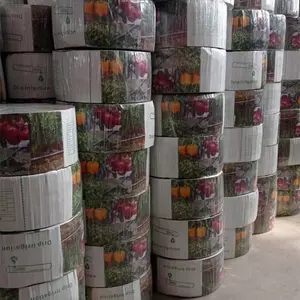



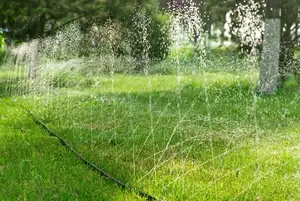





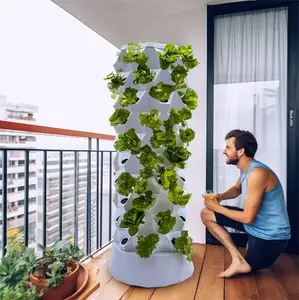










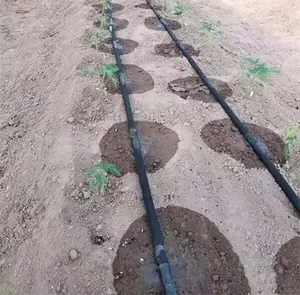

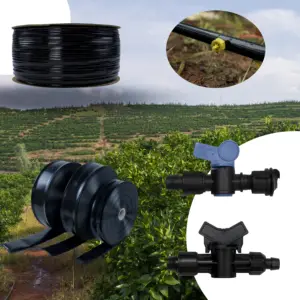






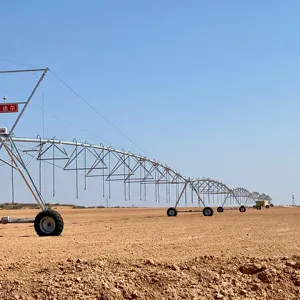






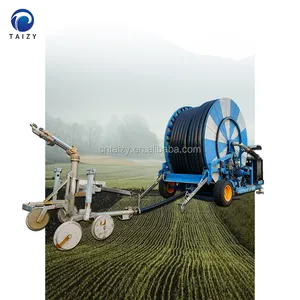




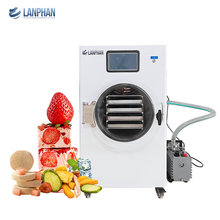
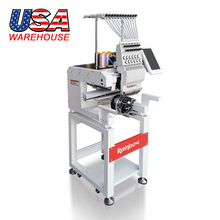
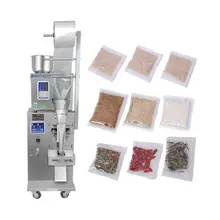
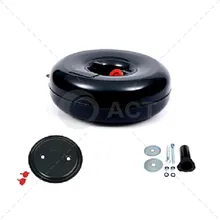
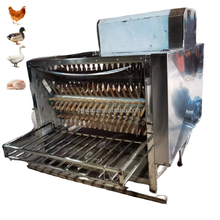


























 浙公网安备 33010002000092号
浙公网安备 33010002000092号 浙B2-20120091-4
浙B2-20120091-4